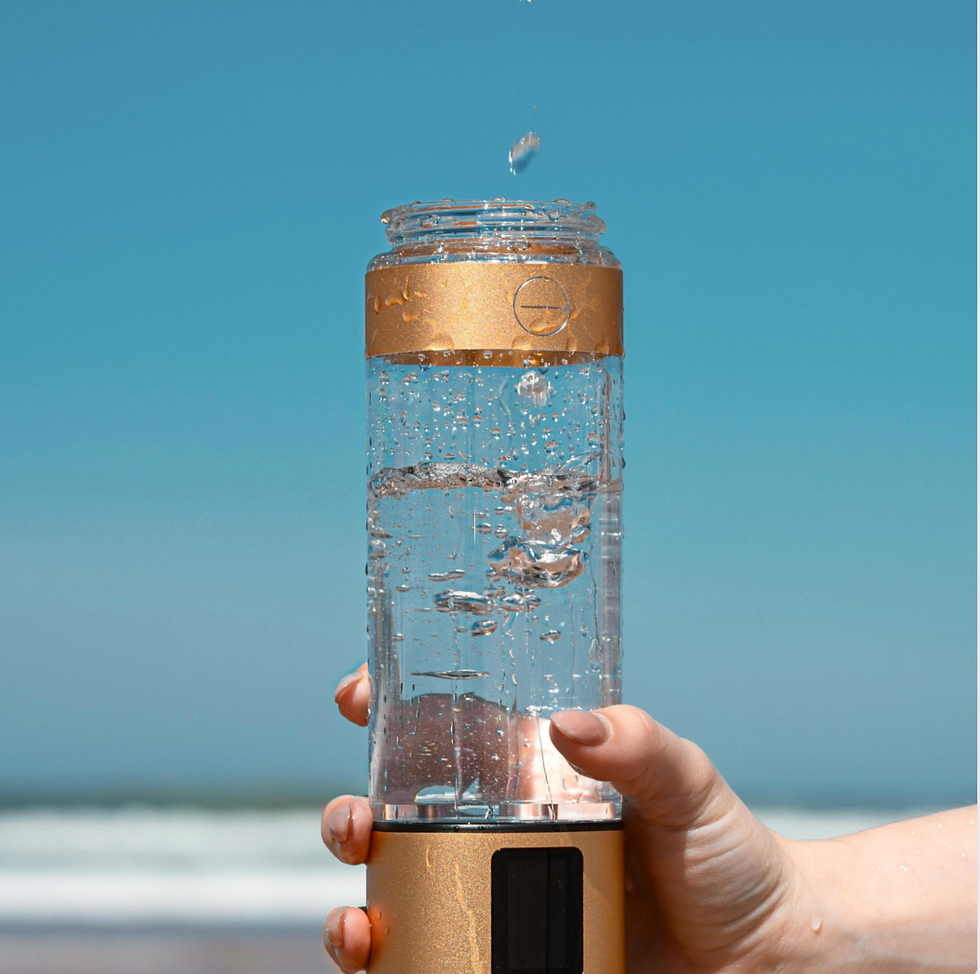What Biohackers Know About NJ Tap Water-and Why Hydrogen is the Upgrade We Need
- patchandprosperllc

- Sep 11, 2025
- 2 min read
Updated: Sep 11, 2025

We trust our taps to deliver clean water. But what if the very water we drink, cook with, and bathe our children in contains hidden threats—like chlorine, heavy metals, and industrial byproducts?
My deep dive into hydrogen water began with a masterclass led by Kashif Khan, a leading voice in biohacking. His insights revealed how price often reflects the integrity of the technology—and why understanding the mechanisms behind hydrogen delivery is essential for real healing.
Chlorine Levels in New Jersey Counties
Chlorine is added to municipal water to kill bacteria, but excessive levels can irritate skin, disrupt gut flora, and even contribute to long-term health issues. Here’s what recent data reveals:
County | Chlorine Level (ppm) | Notes |
|---|---|---|
Monmouth | Up to 0.5 ppm | Within EPA limits, but still detectable |
Ocean | ~0.4–0.6 ppm | Groundwater source; no recent violations3 |
Bergen | ~0.5–0.7 ppm | Some towns face PFAS contamination requiring costly filtration5 |
Even “safe” levels can accumulate over time, especially in children’s developing systems.
What About Bathing?
Bathing in chlorinated water exposes skin and lungs to volatile compounds like trihalomethanes. These can be absorbed or inhaled—especially during hot showers. Sensitive skin, eczema, and respiratory irritation are common complaints among families.
The Hidden Cost of Clean Water
To counteract chlorine, heavy metals, and PFAS, many households invest in filtration systems. But what’s the real cost?
Whole-house filtration systems: $1,200–$5,800 average installation
Under-sink or faucet filters: $150–$1,200
Annual maintenance & replacements: $300–$600
That’s $2,000–$6,000 per household over 3–5 years—just to make water safe.

Smarter Solutions: Hydrogen Water Technology
Instead of just filtering, what if your water could heal?
Why Choose L.M Hydrogen Bottles or Tablets?
L.M’s molecular hydrogen products go beyond filtration. They infuse water with H₂ gas, a potent antioxidant shown to reduce inflammation, boost energy, and support cellular repair.
What Sets L.M Apart?
Feature | L.M Hydrogen Bottle | Cheaper Bottles |
Hydrogen Concentration | 1400–1800 ppb | Often <600 ppb |
Electrolysis Tech | SPE + PEM (removes chlorine/ozone) | Often lacks PEM |
Certifications | IHSA, H2 Analytics lab-tested | Rare or unverified |
Materials | BPA-free Tritan or glass | Often low-grade plastic |
Magnesium Preservative | Stabilizes H₂ release | Not included |
Warranty | 2+ years | Often none |
PEM tech is critical—it ensures safe hydrogen without toxic byproducts. Many budget bottles skip this.

Why Spend More?
My journey into hydrogen water began with Kashif Khan’s masterclass, where I learned that not all hydrogen is created equal. That insight drives my commitment to vetting products with integrity—and sharing only what truly supports cellular healing.
Safety: Certified to remove chlorine and ozone byproducts.
Performance: Higher hydrogen concentration = greater health benefits.
Longevity: Durable, self-cleaning, and backed by warranty.
Trust: Transparent lab results and clean design.
For wellness seekers, biohackers, and moms protecting their families—this isn’t just hydration. It’s transformation.
_edited.png)



Comments